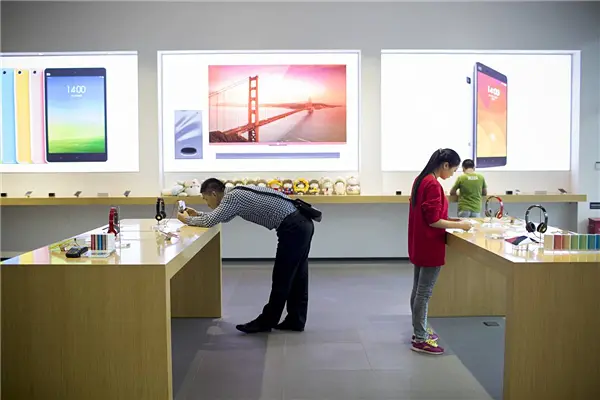(Wall Street Journal) Investors who poured billions into China’s homegrown technology companies scored big during 2015. But increasingly it looks like the easy money has been made and this year could prove tougher as China’s tech companies face high expectations from investors.
Many Chinese privately held startups rewarded investors, as valuations more than doubled during 2015 and a wave of management buyout offers buoyed investors in U.S.-listed Chinese tech companies. More than $60 billion of fresh capital found its way into Chinese startup and take-private deals in 2015, compared with $13.9 billion during 2014 according to data from CB Insights and Dealogic.
Investors marked up their holdings in Chinese privately held startups during the year even as they put lower price tags on some of their Silicon Valley investments. Most investors aren’t required to publicly disclose their valuations of startup holdings, which are often valued based on their most recent round of fundraising. But mutual fund Fidelity Blue Chip Growth Fund, which has marked down some of its Silicon Valley startup investments, instead increased the value ascribed to its January investment in the $15 billion Chinese shopping app Meituan.com by more than 20% through the end of November. Investors have seen their bet on Chinese ride-hailing company Didi Kuaidi Joint Co. nearly triple from a $6 billion valuation in February to $16 billion in September.
Customers looked at Xiaomi products in Beijing in 2014. Investors are becoming more cautious about Chinese startups.PHOTO:BRENT LEWIN/BLOOMBERG
The higher valuations and cash-burning of many startups are giving some investors pause. In recent months, some have become more cautious about putting fresh cash into big startups, as China’s rocky domestic stock market put local initial public offerings on hold.
“The huge swings in the public markets have spilled over into the later-stage venture investment market,” saysRichard Ji,founder of All-Stars Investment Ltd., an investor in Chinese startups like $46 billion smartphone maker Xiaomi Corp. and ride-sharing company Didi Kuaidi Joint Co. “Valuations overall have softened and companies are offering better terms to investors.”
The harsher fundraising environment is prompting entrepreneurs to tighten spending and consider merging with rivals, investors and bankers say.
Cheng Wei, chairman and CEO of Didi Kuaidi, at the Forum on Internet Technology and Standards during the World Internet Conference in Wuzhen, east China's Zhejiang province, in December.PHOTO:LI XIN/ZUMA PRESS
Startup founders “shouldn’t assume that they can always raise a bigger round with a higher valuation six or nine months down the road,” saysJeremy Choy,co-head of mergers and acquisitions at boutique investment bank China Renaissance. “This could be a driver for more M&A discussions.”
Investors have pushed Chinese technology startups to consolidate rather than continue to burn cash in endless competition to attract more customers. The biggest deals during 2015 includeFebruary’s merger of rival ride-hailing appsto form Uber competitor Didi Kuaidi Joint and themerger of rival online-to-offline service providersMeituan.com and Dianping Holdings Ltd. to form a new company valued at $15 billion. Investors say the consolidation trend is likely to continue in 2016, even though such deals will be smaller than 2015’s merger deals.
The financing climate has also changed for entrepreneurs who are just starting their businesses in China, according to local venture capitalists who focus on early-stage startups.
At the start of 2015, Shenzhen Capital Group, a major Chinese venture-capital investor managing $6.2 billion, considered roughly 20 early-stage technology startups each month for possible investments. But by August and September after a crash in China’s domestic stock market, the company’s tech investment team stopped looking at new deals, saidDu Jian,the firm’s tech investment manager. His team began discussing deals again in October, but they have been more cautious about striking deals compared with the first half of 2015, Mr. Du said.
“More resources are being concentrated into fewer startups,” Mr. Du said. Investors can spend less money for bigger stakes, while capable founders will have fewer competitors, he said.
Despite weaker demand for private startups, a wave of take-private buyout offers for U.S.-listed Chinese companies proposed at the start of the summer have regained steam heading into 2016. A total of 27 take private offers were made for U.S.-listed Chinese companies during 2015 worth $33.5 billion, compared with just one such deal worth $660 million during the prior year, according to Dealogic data.
Chinese tech management teams are signing up investors, often domestic, for these buyouts with the promise of relisting locally at much higher valuations. In December,Qihoo 360 TechnologyCo.struck a $9.3 billion dealto take the Chinese security software maker private on the same terms originally proposed in a nonbinding $77 per share offer in June. That came after the stock declined by 40% to hit as low as $42 a share in September amid doubts the buyout would be completed.
A chunk of the Qihoo deal’s funding came from bank loans and wealth management products sold to domestic Chinese investors promising returns up to seven times the original investment.
 简体中文
简体中文



